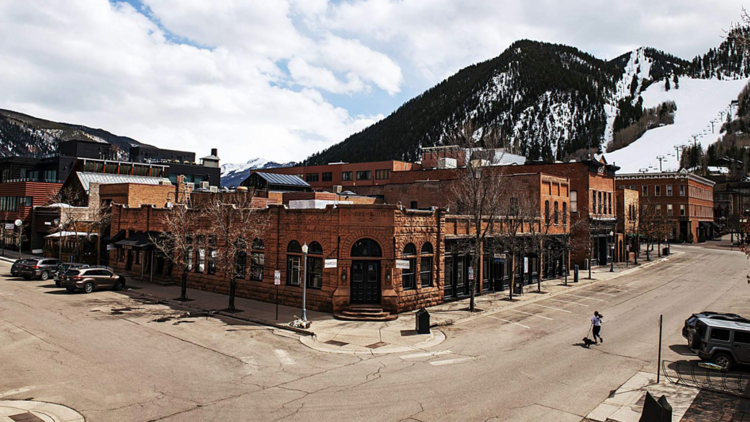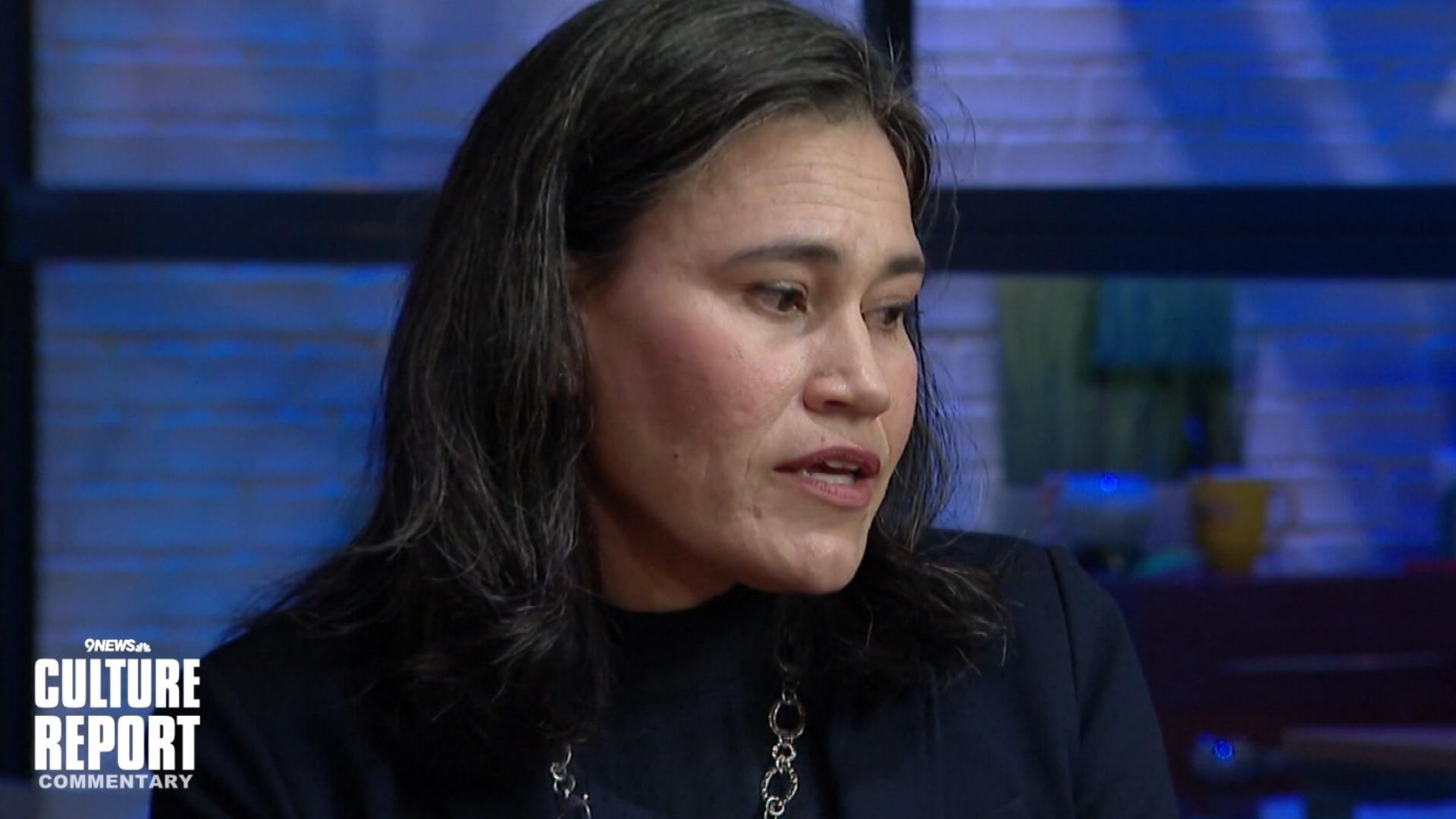ASPEN, Colo. — Just as the residential real estate market has exploded with wealthy people moving to Aspen in what has been dubbed the “urban exodus” during the COVID-19 pandemic, the retail scene in the commercial core is following suit.
Observers of the local business scene had thought at the outset of the pandemic, which hit Aspen in mid-March, that they would be counting the increasing number of empty storefronts by the fall offseason.
But just like most things COVID, it has been the opposite.
This story is powered by COLab, the Colorado News Collaborative. 9NEWS joined this historic collaboration with more than 40 other newsrooms across Colorado to better serve the public.
“We didn’t know what was going to happen with the market,” said Angi Wang, a broker associate with Setterfield & Bright, which handles a majority of retail leases in Aspen’s downtown core. “Everyone was scared and super apprehensive for the summer but summer was more fruitful than people expected.”
That can be partly chocked up to billions of dollars in real estate sales this year as people from cities chose Aspen and the surrounding area to settle in during the pandemic.
“Retailers are following suit,” Wang said, noting that at least a dozen new businesses are setting up shop for the winter season and beyond, with more leases in the works. “People who moved here are shoppers and can afford to shop here.”
Wang estimated that the vacancy rate for retail storefronts in the downtown core is “next to nil.”
“We’re doing deals and we are filling the spaces,” she said, adding that some spaces have had multiple offers, which has driven square-footage rates higher than the asking price.
Restaurants have been able to hang on, despite that they’ve been limited to 50% capacity as a result of COVID-19 physical distancing protocols.
Restaurants’ ability to weather the economic storm was made possible by not only new permanent residents and a strong tourism summer, but the city of Aspen’s pandemic relief efforts.
The city relaxed its rules on restaurants and retailers using the right-of-way and parking spaces for outdoor seating and shopping, giving businesses more capacity.
Aspen City Council is scheduled to discuss during its Monday work session the utilization of outdoor space this upcoming season, with ideas presented by the city’s multi-departmental Winter in Aspen Vitality Team.
Ideas will be floated about warming stations, outdoor dining, park usage, transit and other COVID-19 topics.
The city earlier this year also provided roughly $1 million in rent relief that gave local retailers and restaurants one-third of their monthly rent. The deal was that the landlord and the business had to each cover the other two-thirds, and was good from April to July.
Jimmy Yeager, co-owner of Jimmy’s An American Restaurant, said he had a surprisingly good summer despite that he didn’t use any of the city’s offerings.
Instead, he and his partner, Jessica Lischka, reworked their business model.
“We made some choices like going from seven days to five days,” he said. “I shrunk my business to be more efficient.”
Yeager said he expected to be between 30% and 50% down this past summer, yet his nightly average is over 2019 levels.
That’s because there are more people in town past what would be considered the season, which is based on major events like the kickoff to summer, Food & Wine in Aspen, and the cap off, which is the final concert of the Aspen Music Festival. Neither happened because of COVID-19.
“The third week of August through October we’ve seen more business at a higher capacity than (previous years),” Yeager said. “We did the same level we did in September last year with eight fewer days open.”
COVID-19 has forced Yeager to look at the business holistically.
“One of the things we did was we heavily focused on what are the things that stress a business? Uncertainty causes a level of anxiety,” he said. “We reduced our hours, our staff is stronger, and we are happier, more profitable and less stressed.
“I’m actually more optimistic than I have been for years, how weird is that?”
Just below Jimmy’s are Meat & Cheese Restaurant and Farm Shop, and Hooch Craft Cocktail Bar, owned by Wendy Mitchell.
She is turning her business model upside down this winter by only offering take-out and curbside delivery at Meat & Cheese, and having no indoor dining.
The farm shop inside the small restaurant space will be open for in-store shopping and online orders, which also can be shipped or be picked up curbside.
Meat & Cheese also is preparing meal kits out of its commercial kitchen at the Aspen Business Center.
Downstairs from Meat & Cheese at Hooch, which has been traditionally a bar with light fare, will be transformed into a formal dining room, where dinner and drinks is by reservation only and a three-course prix fixe menu is the offering.
Mitchell said she doesn’t want to operate the business in a reactionary mode.
“I’m unsure what’s going to happen with capacity,” she said. “This is more manageable and it utilizes our kitchen and keeps people employed.
“We aren’t trying to kill it, we are just trying to stay in business.”
Meat & Cheese took advantage of the city’s relaxation of right-of-way rules and expanded the outdoor patio onto the street.
The restaurant also was a recipient of the city’s rent relief program, and also enjoyed a busy summer and fall offseason in the midst of a pandemic when restaurants around the country have been shutting down.
“I feel like we are in an alternate universe here in Aspen,” Mitchell wrote to customers in an email updating them with the changes.
The city’s latest COVID-19 economic recovery effort is small business loans administered through Colorado Lending Source, which has an office in Glenwood Springs.
Eight out of 16 local businesses that applied were recently granted loans at 1% interest rates, with a payback over four years, with no obligation to make a payment for six months.
The program provides access to funding for businesses that may not otherwise qualify for traditional bank loans.
Laurel Walk, chief lending officer for Colorado Lending Source, said two businesses received the largest amount allowed, $30,000. One business received a $25,000 loan; one for $20,500; another for $20,000; one for $14,000; and another for $10,000.
“We had a good mix of restaurants, retail and professional services type businesses,” she said.
Walk added that her firm has assisted other cities like Castle Rock and Fort Collins that have had similar programs.
“We enjoyed working with municipalities,” she said. “It’s been inspiring watching people come together.”
csackariason@aspentimes.com
SUGGESTED VIDEOS: Local stories from 9NEWS



